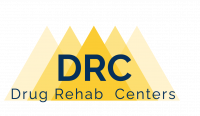How to Support Someone in Rehab

Learning how to support someone in rehab can feel frustrating and overwhelming. Addiction is a chronic and relapsing disorder, meaning that the road to recovery may not always be straightforward. Working out how to support someone in addiction recovery effectively, though, could help your loved one recalibrate their life and move beyond a life constrained by substance abuse. Read on to discover some actionable strategies and find out how to access evidence-based addiction treatment.
10 Ways to Support Someone in Addiction Recovery
Supporting someone in their journey through addiction recovery is a role that could make a meaningful difference. Here’s how to support someone in recovery:
- Educate yourself: Learn about addiction and recovery to understand the challenges and processes your loved one is going through. Knowledge can help you empathize and offer appropriate support.
- Listen without judgment: Provide a safe space for your loved one to share their feelings and experiences. Listening without offering unsolicited advice or judgment can make them feel valued and understood.
- Encourage professional help: Support your loved one in seeking and continuing professional treatment, whether it’s therapy, counseling, or attending support group meetings.
- Celebrate their progress: Acknowledge and celebrate milestones, no matter how small. Positive reinforcement can boost their motivation and confidence.
- Offer practical help: Assistance with daily tasks or responsibilities can alleviate stress, allowing them to focus more on recovery.
- Be patient: Recovery is a gradual process with potential setbacks. Display patience and understanding, reinforcing that you believe in their ability to overcome challenges.
- Maintain healthy boundaries: Set clear, healthy boundaries to support your well-being and prevent enabling behaviors. Boundaries can also help your loved one take responsibility for their recovery.
- Encourage healthy lifestyle choices: Support the person in making healthy choices, such as maintaining a balanced diet, exercising, and adopting stress-reduction techniques.
- Stay informed about relapse signs: Understanding the signs of relapse can help you provide timely support and encourage them to seek help if needed.
- Take care of yourself: Supporting someone in recovery can be emotionally taxing. Ensure that you’re also taking care of your mental and emotional health. Seek support for yourself if needed.
By implementing these strategies, you can offer invaluable support to your loved one, helping them chart the complexities of recovery and move toward a healthier, substance-free life.

Setting Boundaries While Helping Someone with Addiction
Helping someone with addiction can be emotionally challenging, and it’s imperative to establish and maintain boundaries to protect both yourself and the person you’re supporting. Here’s how to support someone with addiction without enabling:
- Clearly define your limits: Take the time to identify what you are and are not willing or able to do to support the person with addiction. This could include limits on financial assistance, time commitments, or emotional involvement.
- Communicate openly: Clearly communicate your boundaries to the individual with addiction in a calm and non-confrontational manner. Express your willingness to support them within the boundaries you’ve set.
- Stick to your boundaries: Once you’ve established boundaries, stick to them consistently. Consistency helps build trust and reinforces the importance of respecting boundaries.
- Avoid enabling behaviors: Be mindful of behaviors that may inadvertently enable the person’s addiction, such as giving them money without conditions or making excuses for their actions. Enabling can perpetuate the cycle of addiction and hinder recovery.
- Practice self-care: Supporting someone with addiction can take a toll on your well-being. Make self-care a priority by setting aside time for activities that help you recharge and maintain your own mental and emotional health.
- Seek support for yourself: Consider joining a support group for friends and family members of individuals struggling with addiction like Al-Anon or Nar-Anon. These groups provide a supportive environment where you can share experiences and learn from others facing similar challenges.
- Know when to seek professional help: While your support can be invaluable, recognize when the person with addiction needs professional treatment. Encourage them to seek help from qualified healthcare professionals or addiction specialists if necessary.
- Be prepared for resistance: The individual with addiction may not always respond positively to your boundaries, and they may push back or become defensive. Stay firm in your boundaries while remaining empathetic and understanding of their perspective.
By setting and maintaining boundaries, you can support your loved one with addiction while also safeguarding your own well-being. Keep in mind that substance use disorder is a chronic and complex condition that often requires professional intervention, and it’s okay to seek help and support for yourself along the way.
Why Supporting Someone in Recovery Is Valuable
Supporting someone in recovery is invaluable because it not only provides them with the encouragement and resources they need to overcome addiction, but also promotes a sense of community and understanding. By offering support, you play an important role in their journey toward a healthier and fulfilling life. Your support can make a significant difference in their recovery process, helping them build resilience and confidence as they work toward initiating lasting change.

Find Addiction Treatment for Your Loved One at Drug Rehabs Centers
Now you know how to help someone in recovery, consider reaching out to Drug Rehabs Centers so they can connect with evidence-based treatment.
Whether your loved one is addicted to alcohol, illicit drugs, or prescription medications, all addictions are treatable. We can provide referrals to detox centers, residential rehabs, and outpatient treatment centers throughout the state of California. This means that when your friend or family member is ready to begin their recovery, you can make the process as seamless as possible.
Call (844) 739-2005 and get help for your loved one right away.
